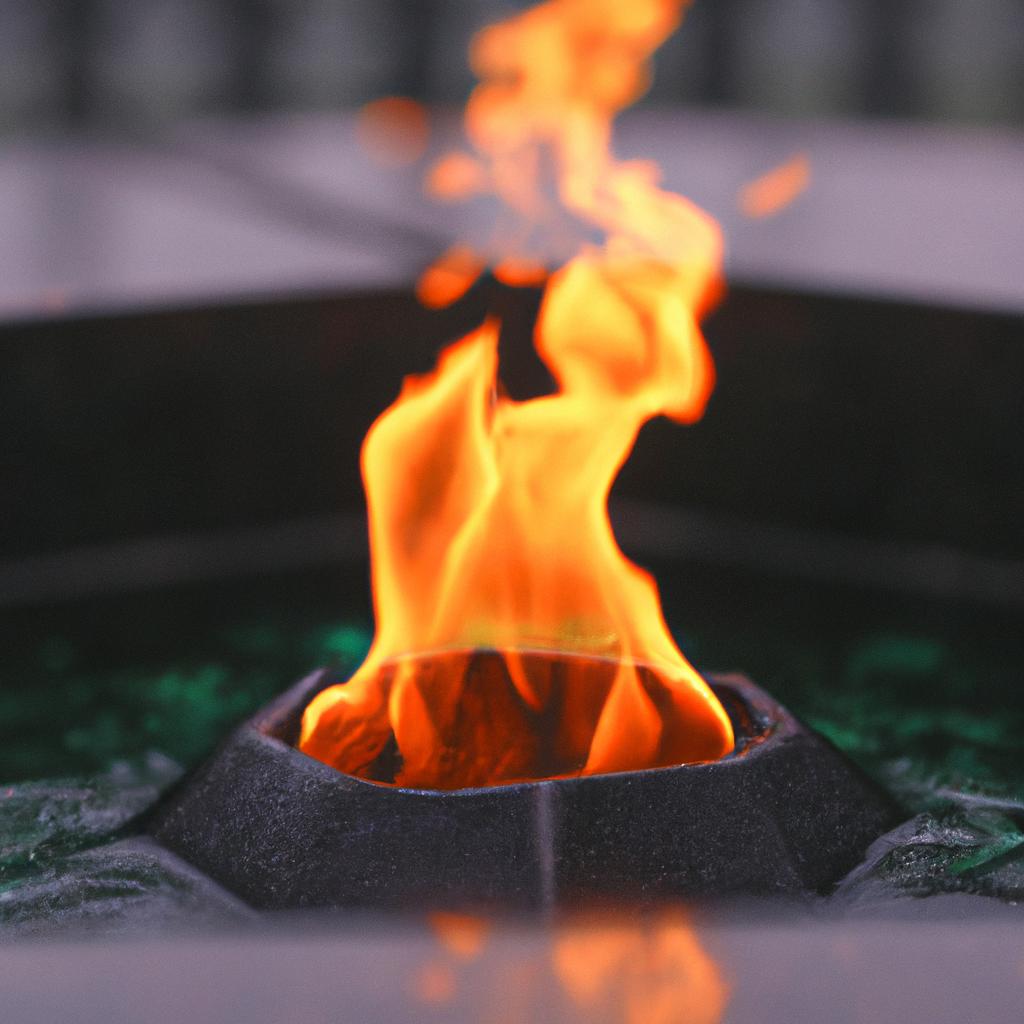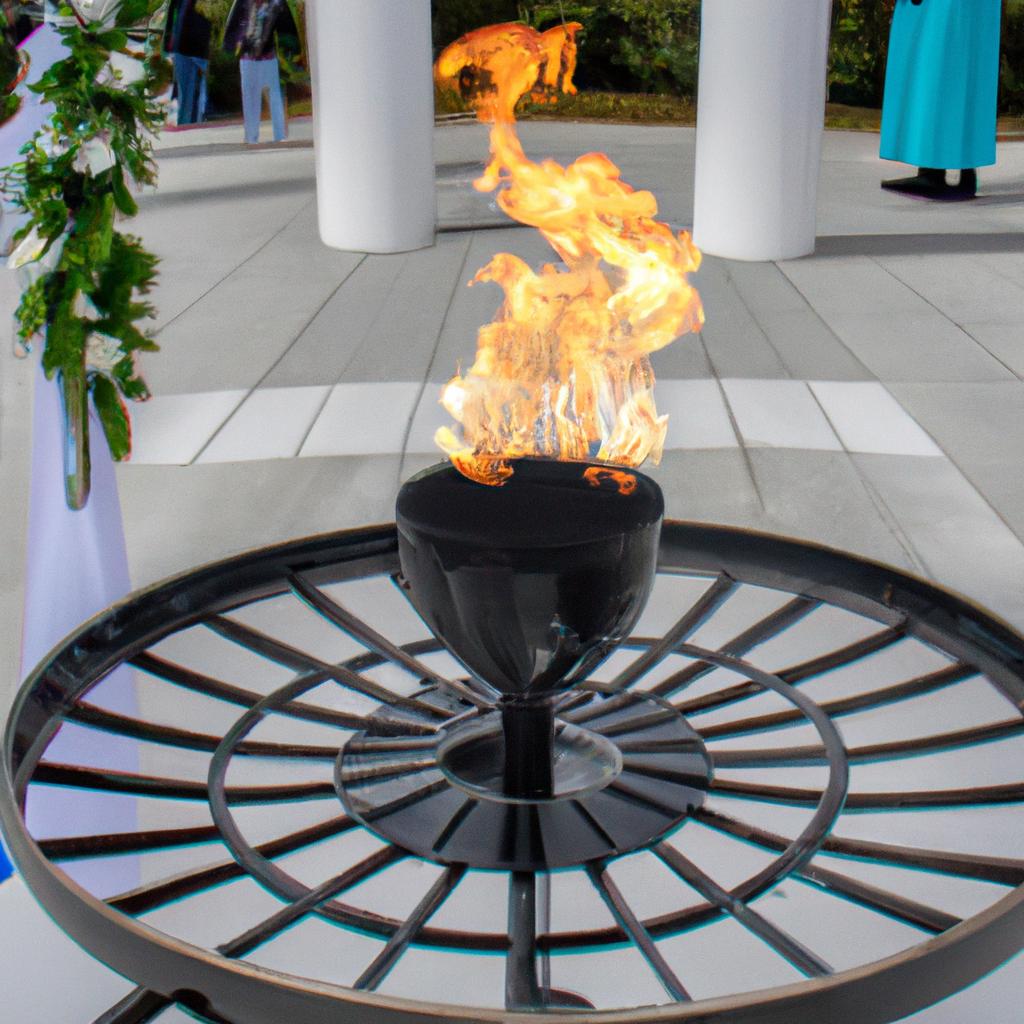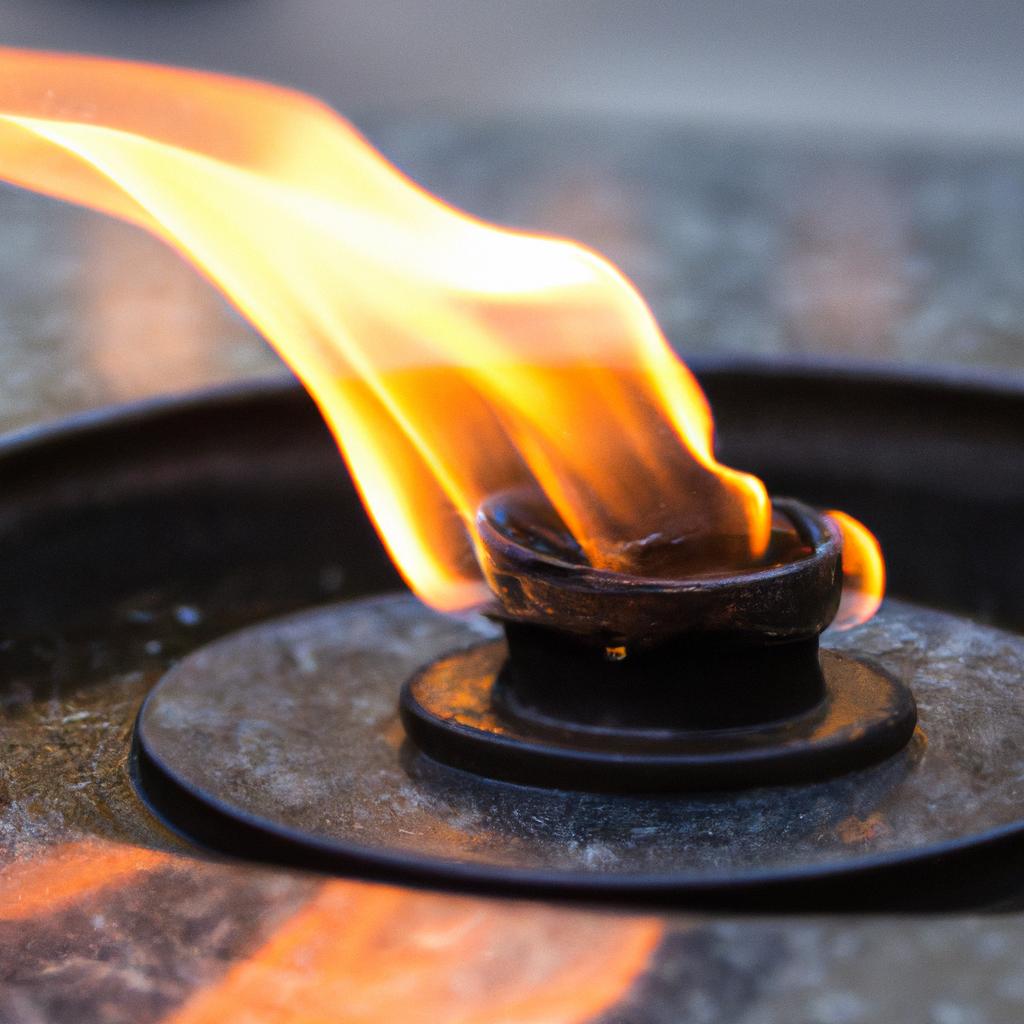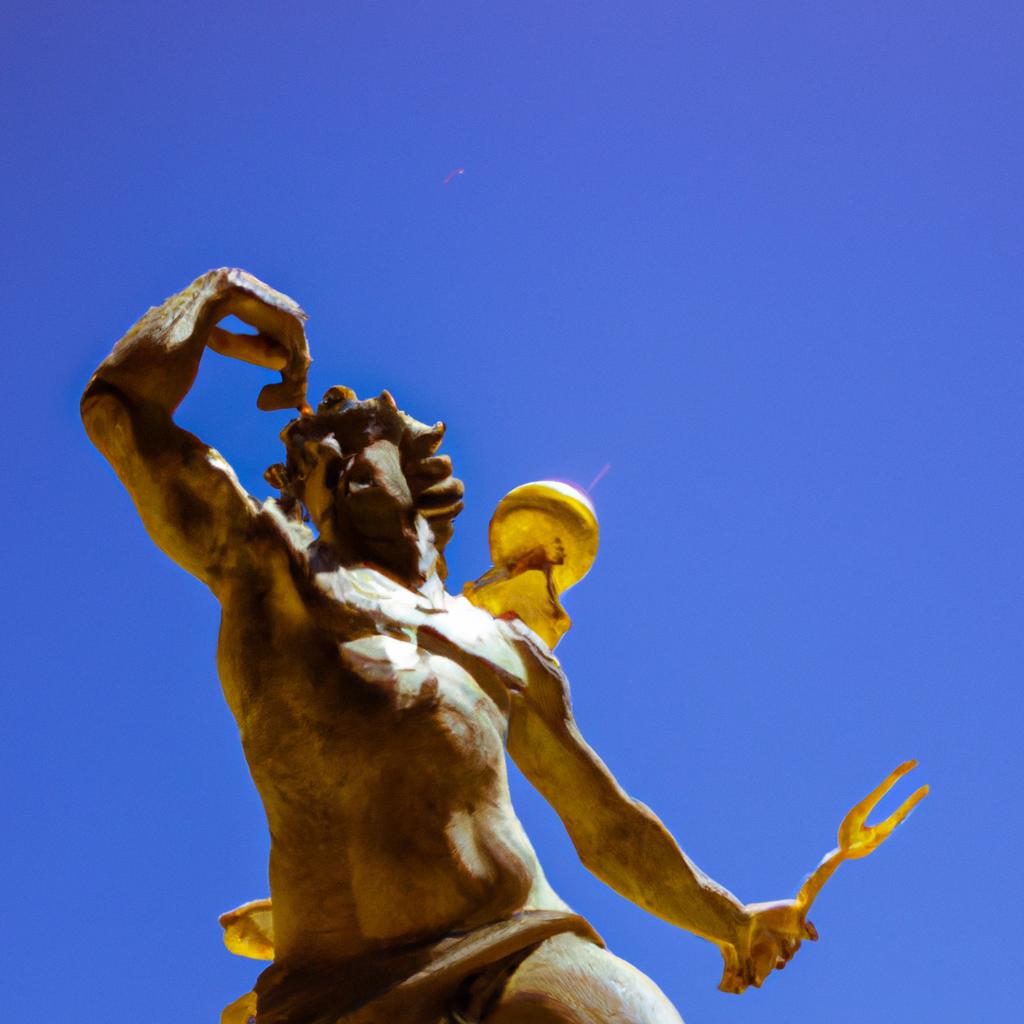Greek Mythology is a treasure trove of fascinating stories. Among them, the legend of the Eternal Flame stands out as a mystical symbol of immortality. In this article, we will delve into the history and significance of the Eternal Flame, exploring its relevance in the modern world.
Uncovering the Origin of the Eternal Flame

A. The Story of Prometheus and the Creation of Fire
Greek Mythology tells us that Prometheus was a clever Titan who championed humanity. He created humans from clay and often came to their aid. One of his most famous acts was stealing fire from the gods. The gods guarded fire jealously, leaving humans in darkness and cold. Out of compassion, Prometheus stole the fire and gave it to humanity. This bold act challenged the gods’ authority, and Prometheus faced severe punishment.
B. Eternal Flame’s Association with Greek Mythology
The myth of Prometheus and the creation of fire lies at the heart of the Eternal Flame in Greek Mythology. The flame became a symbol of the gods’ power and their ability to create and destroy. It also represented humanity’s potential for creation and innovation.
Over time, the Eternal Flame became linked to the goddess Hestia, the guardian of the hearth and home. Hestia’s eternal flame burned in every home, offering protection from harm. The flame also held significance for other gods and goddesses like Apollo and Demeter, who safeguarded the natural world.
C. Symbolism and Significance of the Eternal Flame
The Eternal Flame embodied the concepts of immortality and eternity in Greek Mythology. It symbolized the gods’ power as well as humanity’s creative potential. The flame represented rebirth and renewal, believed to burn eternally without ever extinguishing.
The significance of the Eternal Flame is evident in its frequent appearances throughout Greek Mythology. It served as a symbol of hope and renewal. Even in modern times, the Eternal Flame continues to inspire people worldwide with its powerful symbolism.
Eternal Flame in Greek Culture

The Eternal Flame holds a prominent role in Greek culture, featuring in myths and legends found in ancient Greek literature. Let’s explore its presence, the associated gods and goddesses, and the intriguing stories surrounding it.
The Role of Eternal Flame in Greek Mythology
The Eternal Flame played a vital role in Greek Mythology, symbolizing the power of fire and its ability to bring life and warmth. It was a representation of the gods’ enduring power and immortality, often employed in religious ceremonies and rituals. Hestia, the goddess of the hearth and home, was particularly associated with the eternal flame. It was believed that as long as the flame burned, the home would be protected.
Gods and Goddesses Associated with the Eternal Flame
Numerous gods and goddesses in Greek Mythology were closely linked to the Eternal Flame. Hestia, as mentioned earlier, was the primary goddess associated with the flame. She symbolized the hearth, home, and family, and her eternal flame burned in every ancient Greek home. Hephaestus, the god of fire and metalworking, and Apollo, the god of the sun, music, and prophecy, were also associated with the flame.
Myths and Legends Surrounding the Eternal Flame
Several myths and legends feature the Eternal Flame in Greek Mythology. The story of Prometheus stealing fire is among the most renowned. Prometheus faced punishment, but his gift of fire allowed humanity to prosper and build civilizations. Another captivating myth involves Hestia giving up her seat on Mount Olympus to Dionysus, the god of wine, in exchange for his promise to keep her sacred flame burning.
The Eternal Flame remains a potent symbol of Greek Mythology, representing the everlasting power of fire and the immortality of the gods. Its significance in ancient Greek culture and religion still captivates and inspires people today.
Eternal Flame Around the World

While the Eternal Flame holds a special place in Greek Mythology, it is not exclusive to this ancient culture. Similar eternal flames exist in various other cultures and religions worldwide. Let’s explore some of these examples and uncover their significance.
Examples of Eternal Flames in Other Cultures and Religions
One well-known eternal flame stands at the John F. Kennedy Memorial in Arlington National Cemetery. Lit in 1963, it has burned continuously as a tribute to the late President. Another example is the Atri Rudra Maha Yajna eternal flame in India, which has been burning for over 3,500 years.
In Zoroastrianism, an ancient Persian religion, the Atash Behram temple shelters an eternal flame. This flame represents the highest grade of fire, symbolizing purity and the divine spark within all living things. Priests tend to it diligently, ensuring it never ceases to burn.
The Significance of the Eternal Flame in These Cultures
The eternal flame holds profound significance in many cultures and religions. It represents perpetual life, an indomitable spirit, and everlasting love. The flame symbolizes the idea that certain things endure eternally, regardless of the challenges faced.
For instance, in Hinduism, the flame represents the divine light illuminating the path of truth and righteousness. In Judaism, the eternal flame alludes to Moses encountering the burning bush—an emblem of God’s eternal presence and the covenant with the Jewish people.
Comparing the Eternal Flame in Greek Mythology to Other Cultures
While the eternal flame appears in diverse cultures and religions, its symbolism and significance may differ. In Greek Mythology, the eternal flame embodies the power of fire and its ability to bring life and warmth. It signifies everlasting existence—something that can never be extinguished.
In other cultures, the eternal flame may represent different concepts. For instance, in Christianity, it often symbolizes the Holy Spirit, while in Buddhism, it may signify the inner light of enlightenment.
In conclusion, the eternal flame serves as a potent symbol resonating across cultures and religions for centuries. Whether representing the divine spark within us all or the unyielding spirit of human resilience, the eternal flame stands as a reminder of enduring elements that can never be extinguished.
Conclusion

In summary, the Eternal Flame holds immense significance as a symbol of immortality in Greek Mythology. Its presence reverberates through the myths and legends of ancient Greece and continues to hold sway today. The flame embodies the power of fire, bringing warmth and light to the world.
The Eternal Flame endures as a symbol of Greek Mythology, leaving its mark on contemporary culture. From the Olympic torch to the eternal flame adorning the graves of fallen soldiers, its symbolism continues to captivate and inspire people worldwide.
At TooLacks, we are dedicated to bringing you the latest news and insights on nature, gardening, and animals. We hope this article has deepened your understanding of the Eternal Flame in Greek Mythology, encouraging you to explore further the captivating world of Greek myths.



